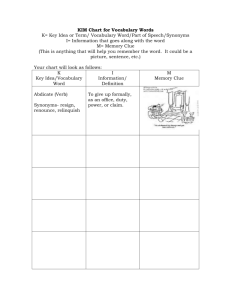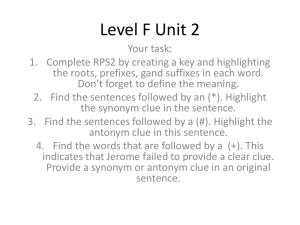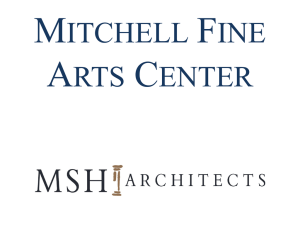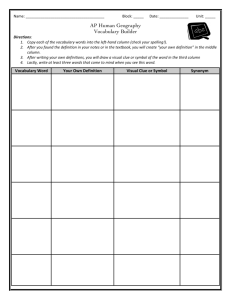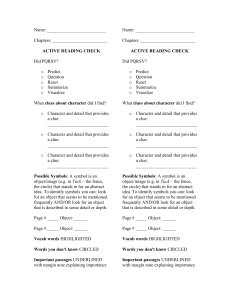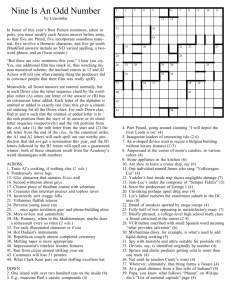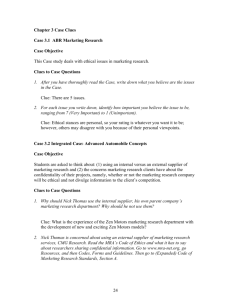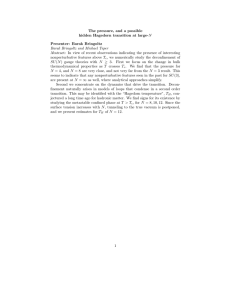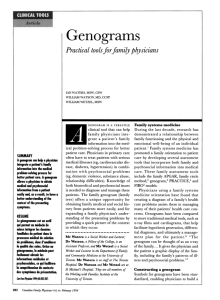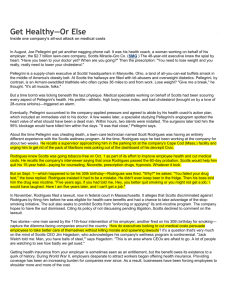Genograms: Assessing the Generational Impact Genogram Basic
advertisement
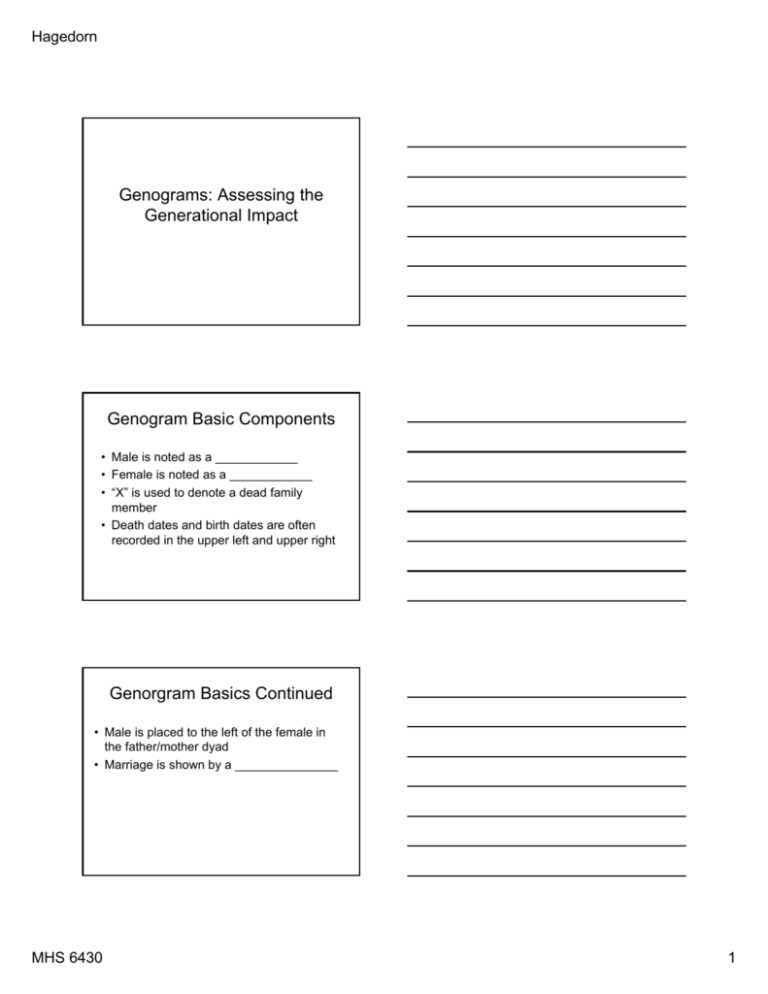
Hagedorn Genograms: Assessing the Generational Impact Genogram Basic Components • Male is noted as a ____________ • Female is noted as a ____________ • “X” is used to denote a dead family member • Death dates and birth dates are often recorded in the upper left and upper right Genorgram Basics Continued • Male is placed to the left of the female in the father/mother dyad • Marriage is shown by a _______________ MHS 6430 1 Hagedorn Extended Family Genogram • • • • Oldest children to left; youngest to right Solid lines in inverted “V” shows twins Hashed lines can show foster children Combined hashed and solid lines = adopted child • Hashed lines can demonstrate relationships vis-à-vis solid line Clue One: Dates • Important historical, familial, and relationship dates • Dates provide information regarding events • Dates indicate what else ______________ __________________________________ – Sequences, concurrently occurring events Clue Two: Gender • Gender _______________________ may thread through families in powerful and subtle ways, creating difficulties when a member marries someone with different gender beliefs. • For example, if you discover that a family has sent clear messages that ______________ ________________________, you may come to understand why a certain younger generation husband and wife are in such a struggle. MHS 6430 2 Hagedorn Clue Three: Secrets • Secrets, still unrevealed or unknown to some, provide information about the ______ __________________________________ in certain families. Clue Four: Losses • A key genogram factor is the issue of losses. • Numerous factors fit in this category - critical illness, death, disabilities, economic reversals, job losses, miscarriages, divorces, and others. • The experience of such losses and the _______________________ varies widely. • A key question is "To what extent was this event perceived as a loss?" Clue Five: Themes • Themes speak to the questions – “____________________________?” – “____________________________?" • They make evident a family's belief structure and guide the family in future behavior. MHS 6430 3
